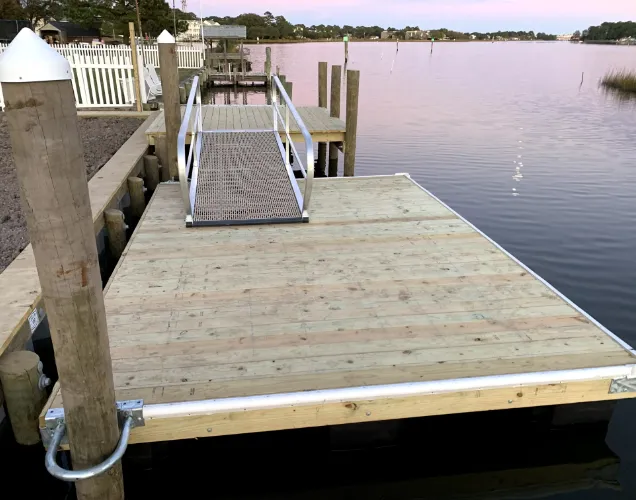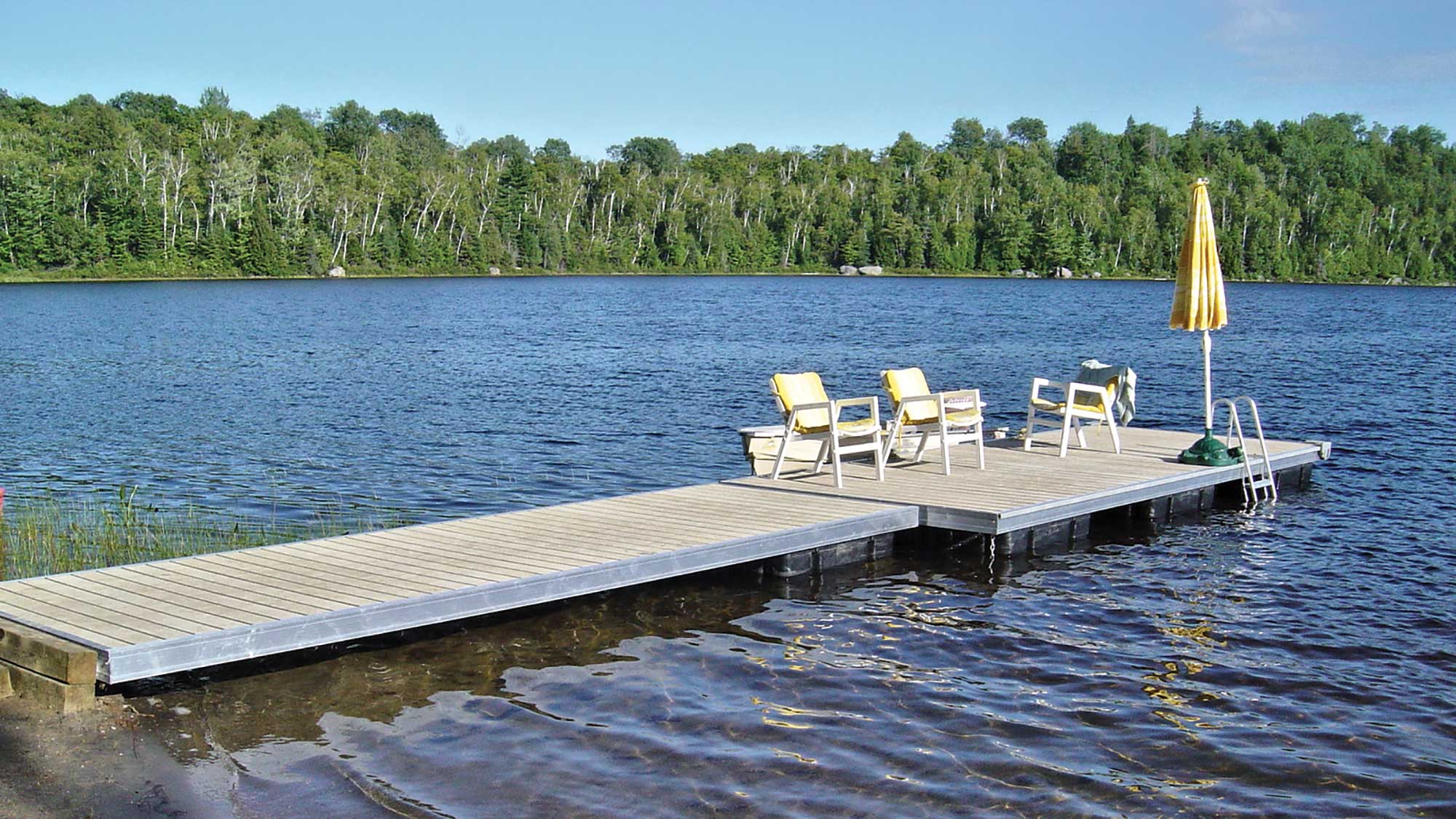Floating Docks: The Smart Choice for Modern Waterfront Living and Entertainment
Floating Docks: The Smart Choice for Modern Waterfront Living and Entertainment
Blog Article
Floating Docks: The Suitable Choice for Versatile Water Gain Access To
Floating docks present a compelling remedy for a variety of water access requires, supplying adaptability that transcends standard mooring options. The modular nature of floating docks helps with customization, providing to details demands.
Advantages of Floating Docks
Floating docks offer countless advantages that enhance water access for numerous applications. Their capacity to fall and rise with altering water levels makes them particularly helpful in atmospheres with varying trends or seasonal variants. This adaptability makes sure that vessels can conveniently tie without issue for the water's depth, providing a trusted system for recreational, commercial, and industrial uses.
In addition, floating docks are frequently created from resilient products that stand up to corrosion, making them suitable for long-lasting usage in aquatic atmospheres. Their installation is generally much less intrusive than traditional fixed docks, lowering the ecological impact and facilitating quicker deployment (floating dock company). This adaptability allows for simpler relocation or reconfiguration according to customer needs or ecological adjustments
Safety is one more key advantage; floating docks can give secure access for individuals disembarking or boarding from watercrafts and reduce the threat of mishaps related to unpredictable surfaces. They can be made to fit a variety of devices, such as fenders and cleats, improving functionality. Generally, floating docks stand for an efficient solution for enhancing water gain access to throughout varied sectors while advertising security and environmental sustainability.

Kinds of Floating Docks
Various sorts of floating docks accommodate different needs and atmospheres, each created with specific features to optimize performance. One of the most common kinds consist of modular docks, which contain interlocking areas that permit simple customization and expansion. These docks are suitable for entertainment use, as they can be tailored to fit various watercraft dimensions and water problems.
Another prominent option is the fixed floating dock, which remains anchored in area however floats with changing water levels. floating docks. This type is particularly fit for areas with marginal tidal changes, offering stable accessibility for fishing or swimming. Furthermore, there are drive-on docks, which feature a sloped design that permits watercrafts to quickly drive on and off, making them suitable for individual watercraft and smaller sized vessels
For commercial applications, heavy-duty floating docks are available, built from reinforced products to hold up against significant loads and harsh marine atmospheres. Finally, environment-friendly floating docks use lasting materials and layouts to lessen ecological effect, usually integrating attributes like greenery to sustain neighborhood wildlife. Comprehending the various kinds of floating docks guarantees that customers can pick the most ideal remedy for their details requirements.
Installation Process Summary
A successful setup of floating docks requires cautious planning and attention to detail to ensure ideal efficiency and safety. The preliminary action entails evaluating the website conditions, including water deepness, present, and prospective obstacles. This assessment informs the selection of the suitable dock products and style tailored to the particular setting.
Next, obtaining needed licenses is important, as numerous territories have guidelines relating to building and construction on water bodies. Once authorizations are secured, the setup can proceed. Begin by preparing the foundation, which might entail anchoring systems or pilings customized to the dock kind and regional problems.
Complying with the structure configuration, put together the dock areas according to manufacturer requirements. Make sure that all elements are firmly secured and aligned to withstand environmental stress and anxieties. Placement the dock in the designated area, guaranteeing it is degree and steady.

Maintenance Tips and Ideal Practices
After the installation procedure is total, continuous maintenance plays a vital duty in making sure the longevity review and performance of floating docks. Regular assessments need to be conducted to determine any try this website kind of signs of damages, wear, or deterioration - floating docks. Examine for any kind of loose installations, fractures, or splitting up in the dock areas, as these can endanger architectural honesty
Cleaning the dock is important to remove debris, algae, and various other build-up that can influence its appearance and security. Use a gentle stress laundry periodically to preserve cleanliness without causing damage to the surface. In addition, using a safety sealant every few years can assist enhance longevity and resist ecological wear.
Take note of the mooring lines and supports, ensuring they are totally free and secure from corrosion. Change any degraded parts promptly to avoid risks. Seasonal modifications may also be needed; during extreme weather, repositioning or strengthening the dock can avoid damages.
Applications for Floating Docks
Floating docks serve a multitude of applications, catering to both entertainment and commercial requirements. In entertainment settings, they supply smooth access to rivers for tasks such as boating, angling, and swimming. Their adjustable nature permits installation in differing water levels, making sure safe and secure access no matter tidal changes.
Commercially, floating docks are important for marinas and beachfront businesses. They facilitate the docking of vessels, making it possible for efficient dumping and loading of goods. Their modular design permits very easy development or reconfiguration to accommodate altering company needs, making them perfect for boat leasings, trip procedures, or fishing charters.
In addition, floating docks are used in ecological applications such as water study and environment reconstruction. They can function as systems for scientific researches, keeping an eye on water quality, or carrying out wildlife surveys without troubling sensitive environments.
In commercial contexts, floating docks are utilized in construction tasks, providing access to hard-to-reach areas for tools and workers. Their versatility, toughness, and minimal effect on the atmosphere make them an optimal option for a variety of applications, boosting both performance and accessibility in various water-based atmospheres.
Verdict
In conclusion, floating docks stand for an ideal remedy for varied water accessibility needs, owing to their adaptability, resilience, and modular style. Floating docks offer as a useful asset for recreational, business, and environmental projects, ensuring reliable access to waterways and advertising lasting methods in aquatic environments.
Floating docks existing an engaging service for a variety of water accessibility requires, offering convenience discover here that goes beyond traditional mooring options.Floating docks offer various advantages that enhance water access for different applications. Overall, floating docks represent an efficient remedy for improving water access across diverse markets while advertising safety and ecological sustainability.
Another popular alternative is the stationary floating dock, which stays anchored in area but drifts with changing water levels.In verdict, floating docks represent an ideal option for varied water gain access to requires, owing to their flexibility, toughness, and modular style.
Report this page